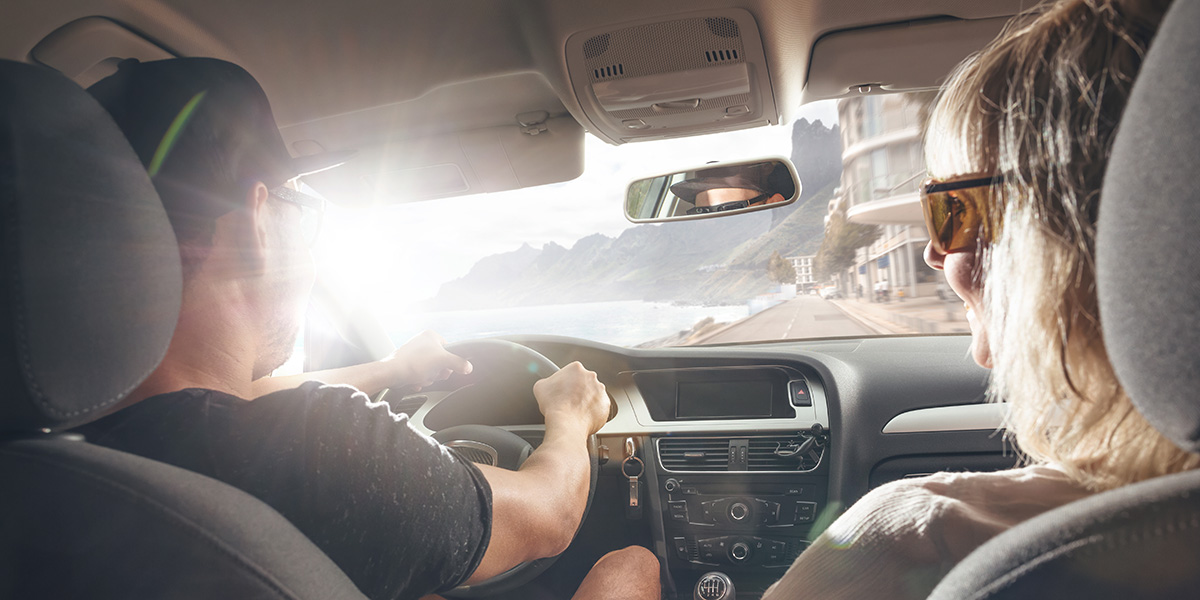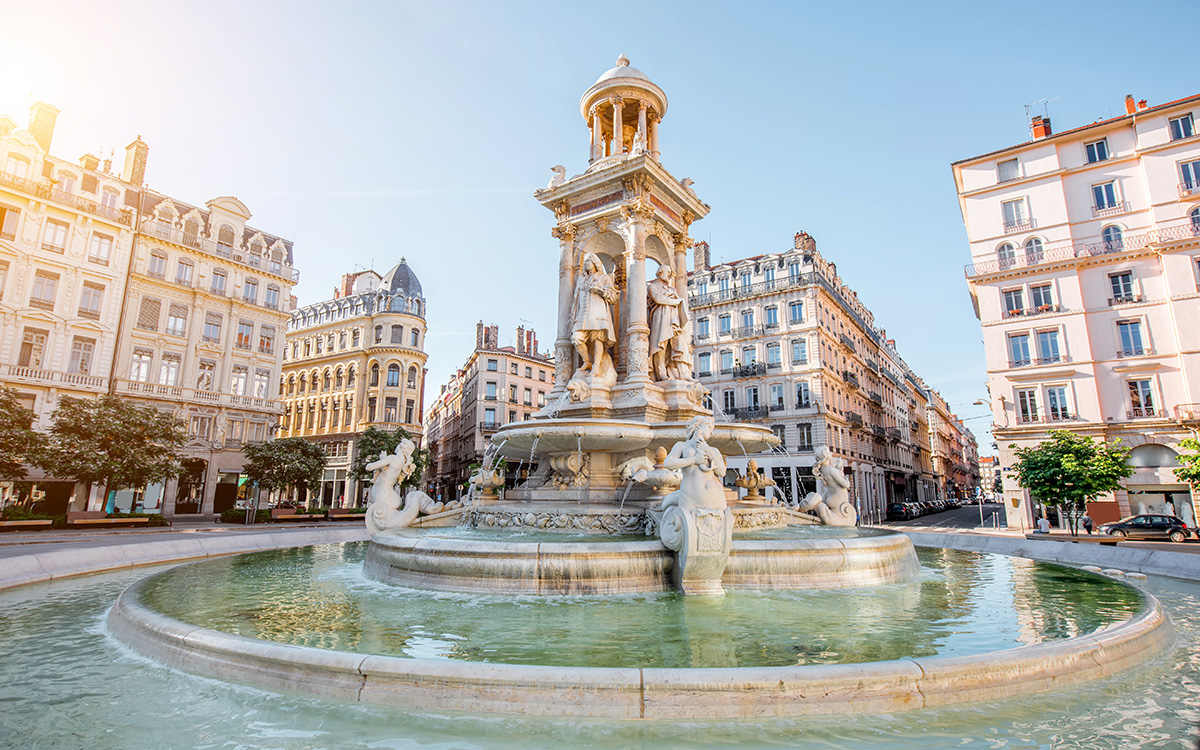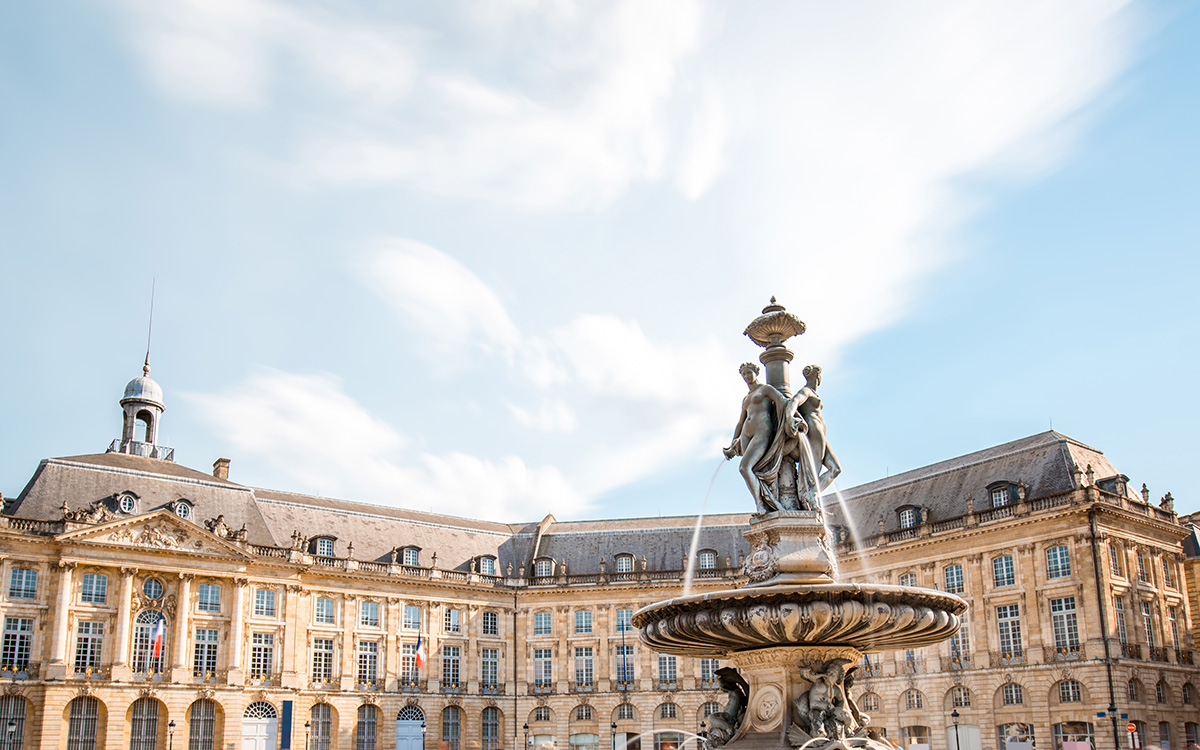

Complete guide to renting a car in France for 2025
Renting a car in France reveals hidden vineyards, wild lavender fields, sudden storms, and quiet lanes where time forgets itself entirely.
Exploring France by road opens a world of charm and freedom, but renting a car in France comes with its quirks. From understanding local rules to finding the best deals, this guide gives you everything you need to navigate the process confidently and enjoy your journey without unnecessary stress.
Ez a cikk társult linkeket tartalmaz.

Should you rent a car in France?
Wondering if renting a car in France is worth it? The answer depends on how you plan to travel. If you want to roam through quiet villages, sip wine at countryside vineyards, and uncover spots trains don’t reach, a car rental in France can be your best move. But if your trip is focused on big cities like Paris, it might be more trouble than it’s worth.
Pros
- Freedom to explore off-the-beaten-path destinations at your own pace.
- No reliance on train or bus schedules — perfect for spontaneous trips.
- Well-maintained roads and clear signage make driving manageable.
- Access to remote villages, beaches, and scenic routes you’d otherwise miss.
Cons
- Parking in cities is expensive, scarce, and often frustrating.
- Extra costs like tolls, insurance, fuel, and deposits can add up fast.
- Summer prices surge, and automatic cars are harder to find — book early.
- City traffic can be stressful and unnecessary if staying in urban areas.
If you’re planning to see the French countryside or coastal regions, renting a car is highly recommended. But for city-only trips, you’re better off relying on France’s excellent public transportation.
Where to find a cheap car rental in France
Visitteo
Ever notice how the same rental car in France can come with five completely different price tags, all depending on where you look? That’s where Visitteo shines. Instead of bouncing between a dozen websites and second-guessing if you’ve found the best deal, Visitteo does all the work for you. It compares car rental prices across all the major providers in France — side by side — so you can see exactly where the savings are. Same car, same dates, better price. If you want to book smart and skip the hassle, Visitteo makes it effortless.
EconomyBookings
If keeping your travel budget in check is a priority, EconomyBookings is another great option for finding cheap car rentals in France. They pull together offers from a wide range of reliable companies, so whether you’re after a zippy compact for city driving or a roomy SUV for a countryside road trip, you’ve got plenty of choices. The platform is easy to navigate, prices are competitive, and the selection rarely disappoints. Just be sure to read the fine print carefully — especially on insurance and extras — to avoid surprises at the counter.
Discover Cars
Discover Cars takes the guesswork out of finding affordable car rentals in France. It compares real-time offers from trusted providers and often uncovers deals you’d swear were too good to be true. The booking process is smooth, the customer support is responsive, and there’s a solid range of vehicles to suit any kind of trip — from a quick city weekend to a long scenic drive through Provence. If you’re after peace of mind and a price that feels like a win, Discover Cars delivers.
Requirements for renting a car in France
Before you get behind the wheel in France, here’s exactly what you’ll need — broken down into simple, clear points:
- Minimum Age: Most car rental companies require drivers to be at least 21 years old. Some may rent to drivers as young as 18, but with restrictions. If you’re under 25, expect to pay a young driver surcharge. For premium cars, the minimum age is often 23 or older.
- Driver’s License: A valid license held for at least one year is required — sometimes two, depending on the type of vehicle.
- International Driving Permit (IDP): If your license isn’t from the EU and is not written in the Roman alphabet, you’ll need an IDP. Even when it’s not mandatory, it’s smart to carry one just in case.
- Passport or National ID: Bring this for identity verification when you pick up your rental car.
- Credit Card: A credit card in the main driver’s name is required for the security deposit. Debit and prepaid cards are almost never accepted.
- Insurance: Third-party liability is legally included, but adding collision damage waiver (CDW) and theft protection is strongly recommended for peace of mind.
What type of car should I rent in France?

Choosing the right car rental in France comes down to where you’re going and how you plan to travel.
Paris, Lyon, Marseille. In France’s busiest cities, smaller is smarter. A compact or economy car makes weaving through narrow streets much less stressful and slips into tight parking spots without a fuss. You don’t want to wrestle with a bulky vehicle in urban traffic here.
Provence, Loire Valley. If you’re heading out to the countryside, comfort and space matter more. A midsize sedan or hatchback strikes the right balance — roomy enough for your luggage and perfect for enjoying those long, scenic drives through vineyards, lavender fields, and charming old towns.
Alps, Pyrenees. Mountain roads can be steep and winding, so an SUV with good handling and plenty of cargo space is the way to go. You’ll appreciate the added confidence and stability on those rugged routes.
Côte d’Azur. If your plans include cruising the Mediterranean coast, why not lean into the glamour? A convertible lets you soak up the sun and salty breeze while turning a few heads along the way. It’s hard to beat that kind of vibe.
Make sure you get insurance coverage
Before you hit the road in France, make sure you know exactly what your rental car insurance covers — and what it doesn’t. Many travelers assume they’re fully protected, but the standard coverage often leaves some big gaps. Spending a little more upfront on full insurance can save you a lot of stress and money later.
Rental prices usually include:
• Third-party liability insurance (TPL) — covers damage or injury you cause to others, but not your car.
• Theft protection (TP) — reimburses you if the car is stolen, though you’ll still owe an excess.
• Collision damage waiver (CDW) — limits how much you pay for repairs if you damage the car, but the excess is often very high.
Optional (recommended) coverage:
• Super CDW or Zero Excess — brings that high excess down to almost nothing, saving you a nasty bill.
• Coverage for windows, tires, undercarriage, and roof — these are rarely covered by the basics, yet they’re some of the most commonly damaged parts.
Best airports in France to start your road trip

France is packed with unforgettable destinations, but where you land can set the tone for your whole trip. Choosing the right airport — and the right car rental to go with it — makes exploring the country seamless and stress-free.
If you’re flying into Paris, cheap car rental at Charles de Gaulle Airport is a smart choice, especially for long-haul arrivals. Prefer a quieter entry point? Paris Orly Airport rental cars make it easy to head south without the bustle of CDG.
For sun-seekers heading to the French Riviera, you can score the best car rental deals at Nice Airport, perfect for cruising the Côte d’Azur in style. In central France, you can grab a rental at Lyon Airport to explore the Alps, Burgundy, or Rhône Valley at your own pace.
Planning a Provençal getaway? Marseille Airport car hire options put you right at the gateway to lavender fields and Mediterranean beaches. Over in the southwest, budget-friendly car hire at Toulouse Airport is ideal for road trips through Occitanie.
For something a little different, you can pick up a rental car at Bâle-Mulhouse Airport, with quick access to France, Switzerland, and Germany. Western France travelers will love the ease of Nantes Airport car rental services, while wine lovers can start their vineyard adventures with hassle-free car rental at Bordeaux Airport.
Top tips for renting a car in France
Book in advance. Rental cars in France, especially automatics, get snapped up fast during peak season. Booking early not only secures you a better price but also gives you more choice.
Go manual if you can. The vast majority of French rentals are manual, and automatics cost significantly more. If you’re comfortable driving stick, it’s a great way to save.
Know the ZFE zones. Many French cities have low-emission zones where older vehicles are banned. Double-check that your rental meets the requirements before you drive in.
Be smart about parking. City parking can be confusing and pricey. Always park in marked spaces and avoid yellow curbs — those mean no parking at all.
Master the roundabouts. France loves its roundabouts. Take your time, yield to cars already inside, and stay calm.
Understand your coverage. Standard insurance leaves you with a big excess, so consider adding extra protection to avoid surprises.
Respect speed limits. France takes speeding seriously, and cameras are everywhere. Fines add up fast.
Budget for tolls. French autoroutes are beautiful but not free — have cash or a card ready for toll booths.
Refuel before returning. Unless you’ve prepaid for fuel, top up the tank before drop-off to avoid expensive penalties.
Best places to explore in France by car

Bordeaux. For wine lovers, nothing compares to exploring Bordeaux by car. Beyond the sophisticated city itself, the surrounding countryside unfolds into a patchwork of world-class vineyards and sleepy villages, each with its unique character, and plenty of tasting rooms.
Loire Valley. If you want to see France at its most romantic, the Loire Valley is hard to beat. Cruising by car through this lush region lets you linger at storybook châteaux, meander through vineyards, and stop in charming little towns whenever the mood strikes.
Provence. Provence begs to be explored at your own pace. Behind the wheel, you can chase the scent of lavender fields, wander through bustling farmers’ markets, and discover quiet hilltop villages bathed in golden light.
Normandy. With its dramatic coastline, historic D-Day beaches, and iconic Mont-Saint-Michel rising out of the bay, Normandy rewards those who take the time to drive its scenic backroads.
Alsace. The Alsace Wine Route is pure magic — winding past half-timbered villages, endless vineyards, and colorful streets. Driving here gives you the freedom to savor every stop, from Colmar to Riquewihr.
The French Riviera. Few drives are as glamorous as the coastal roads of the French Riviera. From Nice to Saint-Tropez, you’ll pass sparkling blue bays, chic seaside towns, and hidden coves that feel like your own private paradise.
How safe is it to travel around France by car
Driving through France is, for the most part, a safe and enjoyable way to see the country. The highways — or autoroutes — are smooth, well-marked, and reliable, though you’ll need to budget for tolls. Speed limits are strictly enforced, with cameras just about everywhere, so it pays to stick to the rules.
In rural areas, roads can get narrow and twisty, especially in mountainous regions, so take your time and stay cautious. Driving in big cities like Paris can feel chaotic at first — expect heavy traffic and impatient drivers — but it’s manageable if you stay calm and alert.
At night, try to avoid dark, winding country roads when possible, and always keep an eye out for cyclists and pedestrians. Car theft and break-ins are rare, but it’s smart not to leave valuables in plain sight.
With some patience, a little local know-how, and a good dose of common sense, traveling around France by car is perfectly safe — and one of the best ways to experience everything the country has to offer.
When to book a car rental in France
High season vs low season rates. Car rental prices in France can swing dramatically depending on when you travel. Summer, school holidays, and festive periods like Christmas are peak season, and prices often double compared to the rest of the year. In hotspots like Provence, Bordeaux, or the Côte d’Azur, demand is fierce and cars book up quickly, especially automatics. By contrast, the low season — typically November through March, excluding Christmas and New Year — is far kinder on your wallet. Rates drop, availability improves, and you’ll have your pick of vehicles without the rush.
Best time to book (how far in advance). When it comes to booking a rental car in France, timing is everything. The sweet spot is usually six to eight weeks before your trip — early enough to secure competitive rates and still have a full selection of cars to choose from. If you’re planning a summer holiday or traveling over major French holidays, it’s wise to book even earlier, sometimes three months out, especially if you need an automatic or something bigger for a family road trip. Leave it to the last minute and you’ll likely pay more, with far fewer options left. A little foresight goes a long way.
Frequently asked questions
It depends on the kind of trip you’re planning. If you’re sticking to Paris or other big cities, a car can quickly feel like a burden — between traffic jams, pricey parking, and low-emission restrictions, you’re better off using public transport. But if you’re craving the freedom to roam through quaint villages, rolling vineyards, and hidden countryside gems that trains just don’t reach, renting a car in France is worth it.
You’ve got plenty of solid options. Big names like Europcar, Hertz, Sixt, Avis, and Enterprise all operate throughout France, offering reliable service and a wide range of vehicles. Local agencies, like Rent A Car, can sometimes offer better rates or more flexible terms. Book early online — especially during peak travel months — to snag the best prices.
Yes — by law, basic coverage is included in every rental. But here’s the catch: it usually comes with a hefty deductible. To avoid any nasty surprises, many travelers opt for extra insurance or a damage waiver. It’s a small price to pay for peace of mind on the road.
Absolutely — and it’s a great way to make the most of your trip. Most rental agencies allow you to cross borders into neighboring EU countries without issue, as long as you let them know ahead of time. Some destinations may carry a small surcharge or restriction, so always check the fine print.
If your driver’s license is in English and uses the Latin alphabet, you don’t need an IDP. But if it’s in another language or script, it’s smart to get one before your trip. It only takes a few minutes to apply and can save you a headache if you’re pulled over.
Yes — one-way rentals are common, and they’re perfect if you’re planning a longer route or flying out of a different city. Just be aware there’s usually a surcharge for the convenience.
On highways, the speed limit is 130 km/h — or 110 if it’s raining. On main roads, expect 80–90 km/h, while in towns and cities it drops to 50 km/h or even lower in residential zones. Always keep an eye out for posted signs — speed cameras are everywhere.
For the most part, yes. French roads are well-maintained, clearly marked, and easy to navigate. Driving in big cities can feel hectic, and parking is notoriously tight, but outside of urban areas, it’s smooth sailing. Just don’t drink and drive — France has stricter blood alcohol limits than many countries.
Have your license, passport, and a credit card in the driver’s name ready when you pick up the car. Most companies require you to be at least 21, and drivers under 25 usually pay an extra fee. If you plan to drive into city centers, make sure your car has a valid Crit’Air sticker for low-emission zones.
It’s not required, but it’s highly recommended. The basic coverage leaves you financially responsible for thousands of euros if anything goes wrong, so adding a collision damage waiver or supplemental insurance is a smart move.
In bigger cities and along major highways, absolutely — the charging infrastructure is expanding quickly. But if your trip takes you deep into rural areas, you might be better off sticking to a gas or diesel car for now.
It’s straightforward. Book online before your trip to secure the best rates, then pick up your car at the airport, train station, or city center. When you pick it up, inspect it carefully, note any existing damage, and make sure you understand the fuel policy.
On average, expect to pay anywhere from €250 to €500 for a compact car over seven days. Prices can jump during high season, for automatic transmissions, or for premium models.
It’s rare, but not unheard of. Use common sense — don’t leave valuables in plain sight, always lock the doors, and try to park in secure or well-lit areas.
Many French cities — Paris, Lyon, Marseille, to name a few — have introduced low-emission zones to cut pollution. Older, high-emission vehicles are restricted, especially during certain hours. Rental cars are usually compliant, but double-check with the agency and confirm your car has the right Crit’Air sticker if you plan to drive into these zones.